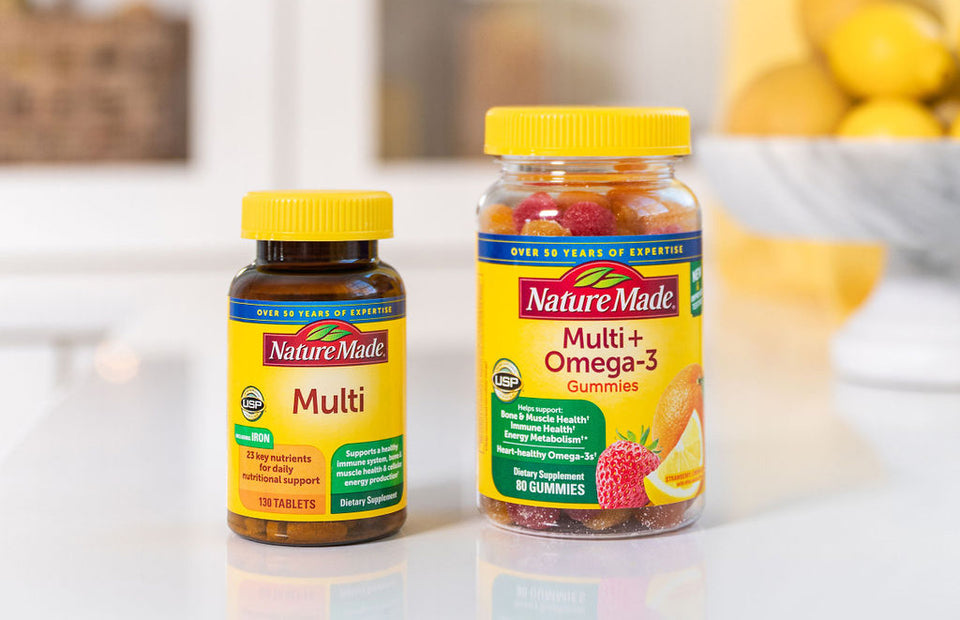Ensuring children receive the necessary nutrients for optimal growth and development can be challenging, particularly with picky eating habits. A high-quality multivitamin can help bridge the nutritional gap, supporting overall health and well-being. With numerous options available, selecting the best multivitamin for kids can be overwhelming. Factors such as age, dietary needs, and ingredient quality must be considered. This article will explore the key considerations and highlight top multivitamin options, providing parents with the information needed to make an informed decision about their child’s supplement routine and overall health.

Choosing the Right Multivitamin for Your Child’s Health
When it comes to ensuring your child is getting all the necessary nutrients for optimal health and development, a multivitamin can be a valuable supplement to their diet. However, with so many options available on the market, selecting the best multivitamin for kids can be a daunting task for parents. The key is to understand what to look for in a multivitamin and how it can support your child’s specific health needs.
Understanding the Importance of Multivitamins for Kids
Multivitamins are dietary supplements that contain a combination of vitamins, minerals, and sometimes other nutrients. They are designed to fill any nutritional gaps in a child’s diet, ensuring they receive all the essential nutrients necessary for healthy growth and development. Essential Vitamins and Minerals play critical roles in various bodily functions, including energy production, immune function, and the development of strong bones and teeth.
| Nutrient | Importance |
|---|---|
| Vitamin D | Crucial for bone health and immune function |
| Calcium | Essential for building strong bones and teeth |
| Iron | Vital for healthy red blood cells |
Factors to Consider When Choosing a Multivitamin
When selecting a multivitamin for your child, there are several factors to consider. The first is the age and dietary needs of your child. Multivitamins are often formulated for different age groups, so it’s crucial to choose one that is appropriate for your child’s age. Additionally, if your child has specific dietary restrictions or preferences, such as being vegan or having a dairy allergy, you’ll need to select a multivitamin that is compatible with these needs.
Forms of Multivitamins for Kids
Multivitamins for kids come in various forms, including Gummies, Chewable Tablets, and Liquid. The form you choose may depend on your child’s preference and ability to swallow pills. Gummies and chewable tablets are popular among children due to their taste and ease of consumption. However, it’s essential to ensure that the form you choose does not contain excessive Sugar or Artificial Flavors.
| Form | Pros and Cons |
|---|---|
| Gummies | Pros: Tasty and fun for kids; Cons: May contain sugar and artificial flavors |
| Chewable Tablets | Pros: Often less sugar than gummies; Cons: May still contain artificial flavors |
| Liquid | Pros: Easy to administer and can be mixed with food; Cons: May have a strong taste |
What to Look for in a Multivitamin Label
When examining the label of a multivitamin, look for products that have been tested by third-party organizations such as the National Science Foundation (NSF) or ConsumerLab.com. These organizations verify the product contains what it claims and is free from contaminants. Also, check the ingredient list to ensure it doesn’t contain unnecessary additives or allergens.
Consulting with a Healthcare Professional
Before starting your child on any multivitamin, it’s advisable to consult with a healthcare professional. They can provide guidance based on your child’s specific health needs and ensure that the chosen multivitamin won’t interact with any medications they’re taking. A healthcare professional can also recommend the best multivitamin based on your child’s diet and health status.
| Professional Advice | Benefits |
|---|---|
| Personalized Recommendations | Ensures the multivitamin meets your child’s specific health needs |
| Avoiding Potential Interactions | Prevents adverse interactions with other medications |
What is the healthiest kids multivitamin?

The healthiest kids multivitamin is a dietary supplement designed to provide essential vitamins and minerals that are crucial for a child’s growth and development. When selecting a multivitamin for kids, it’s essential to choose a product that is nutrient-rich, made with high-quality ingredients, and tailored to a child’s specific age and needs.
Key Considerations for Choosing a Kids Multivitamin
When choosing a multivitamin for kids, there are several factors to consider to ensure that the product is both effective and safe. A good kids multivitamin should be made with natural ingredients and be free from artificial additives and allergens. Here are some key considerations:
- Look for a product that is third-party tested to ensure purity and potency.
- Choose a multivitamin that is formulated to meet a child’s specific nutritional needs based on their age and developmental stage.
- Consider a product that is available in a variety of forms, such as chewable tablets or gummies, to make it easier for kids to take.
Essential Nutrients in a Kids Multivitamin
A good kids multivitamin should contain a range of essential vitamins and minerals that are crucial for a child’s growth and development. Some of the key nutrients to look for include vitamin D, calcium, and iron. Here are some essential nutrients that a kids multivitamin should contain:
- Vitamin D is essential for bone health and immune function.
- Calcium is crucial for building strong bones and teeth.
- Iron is necessary for healthy red blood cells and preventing anemia.
Benefits of Taking a Kids Multivitamin
Giving a child a daily multivitamin can have numerous health benefits, including filling any nutritional gaps in their diet and supporting overall health and well-being. Some of the benefits of taking a kids multivitamin include:
- A multivitamin can help to boost energy levels and support overall health.
- A daily multivitamin can help to support immune function and reduce the risk of illness.
- A kids multivitamin can help to support healthy growth and development, including bone health and cognitive function.
What are the best vitamins to take for children?
:max_bytes(150000):strip_icc()/NatureMadeKidsFirstMultiwithOmega-3-d1e47471a2df47d2b75eeb8b70f72616.jpg)
The best vitamins to take for children depend on several factors, including their age, dietary habits, and overall health. Generally, a well-balanced diet provides adequate vitamins and minerals, but supplements can help fill nutritional gaps.
Essential Vitamins for Children’s Growth
Children require a range of vitamins for optimal growth and development. Vitamin D is crucial for bone health, while Vitamin C supports immune function and Vitamin B12 is necessary for brain development and the formation of red blood cells. Ensuring adequate intake of these vitamins is vital for preventing deficiencies.
Some key vitamins and their benefits include:
- Vitamin A for healthy vision and immune system
- Vitamin D for bone growth and development
- Vitamin E for antioxidant properties and protecting cells from damage
Factors Influencing Vitamin Needs in Children
The need for vitamins in children can be influenced by various factors, including diet, lifestyle, and health status. Children who follow a vegetarian or vegan diet may require additional supplements, such as Vitamin B12, which is found primarily in animal products. Similarly, children with certain medical conditions or those taking specific medications may have different vitamin requirements.
Some factors that may affect vitamin needs include:
- Dietary restrictions such as vegetarian or vegan diets
- Medical conditions that affect nutrient absorption
- Medications that interfere with vitamin levels
Choosing the Right Vitamin Supplements for Children
When selecting vitamin supplements for children, it’s essential to choose products that are safe and effective. Look for supplements that are specifically formulated for children and contain a balanced mix of vitamins and minerals. Always consult with a healthcare professional before giving your child any supplements to ensure they meet their individual needs.
Some considerations when choosing vitamin supplements include:
- Age and dosage to ensure the supplement is suitable for the child’s age and needs
- Allergen-friendly options for children with allergies or sensitivities
- Third-party certification to verify the product’s quality and purity
Is it good to take a multivitamin everyday for kids?

Is it good to take a multivitamin every day for kids? The answer to this question is not straightforward and depends on various factors, including the child’s diet, age, and health status. Generally, a well-balanced diet that includes a variety of foods from all food groups should provide children with the necessary nutrients for optimal growth and development. However, some children may require supplements due to dietary restrictions, picky eating habits, or certain medical conditions.
Nutritional Benefits of Multivitamins for Kids
Multivitamins can help fill nutritional gaps in a child’s diet, ensuring they receive essential vitamins and minerals. The key benefits include supporting immune function, promoting healthy growth and development, and maintaining energy levels. Some of the essential nutrients that multivitamins often provide include:
- Vitamin D for bone health and immune system regulation
- Iron to support healthy red blood cells and prevent anemia
- Calcium for building and maintaining strong bones and teeth
Considerations Before Giving Multivitamins to Kids
Before deciding to give a multivitamin to a child, it’s crucial to consider several factors. These include the child’s age, dietary habits, and any health conditions they may have. It’s also important to choose a multivitamin that is specifically formulated for children and to follow the recommended dosage. Some key considerations include:
- Ensuring the multivitamin is suitable for the child’s age group and does not exceed the recommended daily intake of any nutrient
- Consulting with a healthcare professional to determine the need for a multivitamin and to discuss any potential risks or interactions with other medications
- Being aware of the potential for over-supplementation and the risks associated with excessive intake of certain vitamins and minerals
Potential Risks and Side Effects
While multivitamins can be beneficial for kids, there are also potential risks and side effects to be aware of. These can include allergic reactions, interactions with other medications, and the risk of over-supplementation. Some potential risks include:
- Allergic reactions to certain ingredients in the multivitamin
- Interactions with other medications or supplements that the child is taking
- Gastrointestinal side effects, such as nausea or stomach upset, in some children
What vitamins do pediatricians recommend?
:max_bytes(150000):strip_icc()/parents-best-vitamins-for-kids-tout-f23adf506d154eaf8597b39e1752d2ed.jpg)
Pediatricians often recommend a range of vitamins and nutrients to support the growth and development of children. The specific vitamins recommended can depend on factors such as the child’s age, diet, and health status. Generally, pediatricians suggest that children receive a balanced mix of vitamins and minerals through a healthy diet, and supplements may be recommended if dietary needs are not being met.
Essential Vitamins for Infants
Infants require certain vitamins for optimal growth and development. Vitamin D is crucial for bone health, and pediatricians often recommend supplements for breastfed infants or those not consuming enough vitamin D-fortified formula. Other essential vitamins include:
- Vitamin K for blood clotting, usually administered via injection at birth
- Vitamin A for vision and immune function, often obtained through breast milk or formula
- Vitamin B12 for neurological development and the formation of red blood cells
Vitamins for Children’s Overall Health
As children grow, a range of vitamins supports their overall health and development. Multivitamins can help fill any nutritional gaps in a child’s diet. Key vitamins include:
- Vitamin C for immune function and iron absorption
- Calcium and Vitamin D for bone growth and density
- Iron (often considered a mineral but crucial alongside vitamins) for healthy red blood cells
Special Considerations for Vitamin Supplements
Certain children may require additional vitamin supplements based on their specific needs. For example, vegetarian or vegan children may need supplements of Vitamin B12, which is primarily found in animal products. Other considerations include:
- Children with restricted diets may require supplements to ensure they get all necessary nutrients
- Those with chronic health conditions may have different vitamin needs or absorption rates
- Premature infants may require additional vitamins and minerals due to their higher nutritional needs
Frequently Asked Questions
What are the key nutrients to look for in a multivitamin for kids?
When choosing a multivitamin for kids, it’s essential to look for a product that contains a broad range of essential vitamins and minerals. These should include vitamin D for bone health, calcium for bone development, iron to support healthy red blood cells, and vitamin C to boost the immune system. Additionally, a good multivitamin should contain B vitamins, such as thiamine, riboflavin, and folate, which play a crucial role in energy production and overall health. It’s also important to consider the child’s age and dietary needs when selecting a multivitamin.
Are there any specific multivitamins recommended for children with dietary restrictions?
For children with dietary restrictions, such as vegans or those with gluten intolerance, it’s crucial to choose a multivitamin that is free from allergens and artificial additives. Look for products that are labeled as vegan-friendly or gluten-free, and opt for multivitamins that are made from natural ingredients. Some multivitamins are also designed for children with specific dietary needs, such as lactose-free or soy-free options. Always check the ingredient label and consult with a healthcare professional if you’re unsure.
How can I ensure the multivitamin is safe for my child to take?
To ensure the multivitamin is safe for your child, always check the dosage instructions and follow the recommended daily intake. Be aware of any potential allergens or interactions with other medications your child may be taking. Choose a multivitamin that has been tested by a third-party organization, such as the National Science Foundation or the ConsumerLab.com, which verify the product’s quality and purity. Additionally, consult with a healthcare professional before giving your child any new supplement, especially if they have any underlying medical conditions.
Can a multivitamin replace a healthy diet for my child?
While a multivitamin can help fill any nutritional gaps in your child’s diet, it should not be relied upon as a replacement for a balanced and healthy diet. A multivitamin is meant to supplement, not substitute, a diet rich in whole foods, such as fruits, vegetables, whole grains, lean proteins, and healthy fats. Encourage your child to eat a variety of nutrient-dense foods to support their overall health and development, and use a multivitamin as an added layer of protection to ensure they’re getting all the necessary vitamins and minerals.














